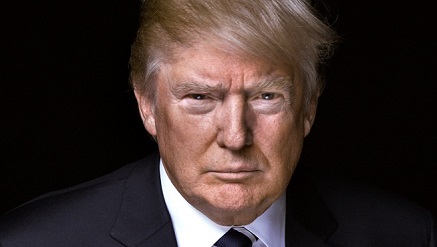Broadcasting
Your Ultimate Content Guide for Enjoying the Best Of Big Brother Naija All-Stars

Big Brother Naija is back for the eighth and perhaps most explosive season yet! The new edition will feature former housemates returning for another run in the ‘Biggieverse’. The ‘All-stars’ will get a chance to win where they lost before and possibly walk away with ₦120 million cash, among other prizes.

Interestingly, only one African can understand the enormous opportunity of winning the show – Uti Nwachukwu. Uti won the ‘Big Brother Africa All-Stars season in October 2010 and has remained a certified star ever since. His season was spicy, and the twists left viewers’ heads spinning, but Big Brother Naija All-Stars promises to be more. It means that fans will not want to miss any moment of the game, but that’s impossible since the show is on 24/7.
However, the breakdown below will help you keep track of the most important activities for each day, from Sunday to Monday. Let’s go!
Mondays – The Black Envelope Challenge: Every year, Big Brother introduces new twists to his ‘Biggieverse’. As longtime fans know, the Big Brother house is Biggie’s universe, and he runs it however he deems fit. This season, the iconic leader of the show is introducing a new spin to the usual Head of House games. However, no one knows the details yet, and they won’t until the season’s first challenge.
If the game is anything like the former HOH game, it will make or break housemates’ strategy and affect their time in the house. Usually, the winner of the HOH challenge wins a reward like a personal executive room with a chosen partner of the opposite sex, immunity from the week’s nominations and veto power to save and replace housemates. However, this may not be the case this season. Viewers must wait until Monday, July 24, 2023, at 7 pm to understand what the game means for the season.
Tuesdays and Wednesdays – Diary Room: The diary room sessions affect the fanbases a housemate can gather. They are often emotional entries into housemates’ hearts where they either connect with Big Brother and the viewers or gather a group of haters. However, things are different this year since the all-stars already know what to expect from the diary session. So, fans should anticipate the strategic use of this session. Will your fave be the most annoying person during sessions or the cutest and heartwarming? Tune in every Tuesday and Wednesday from 1 pm to find out!
Tuesdays to Saturdays – Daily Tasks: Big Brother Naija All-Stars will gather 20 housemates in a house from different backgrounds and seasons, so it may be easy to watch cliques form from day 1. There may be bland moments if housemates only stay in their circles. Tasks and presentations force them to come out of their shells and interact. It allows for possibilities where people become friends after they connect during an activity or enemies because they clashed. Apart from being educative, informative and exciting to watch, tasks are essential to a housemate’s journey. Enjoy daily tasks every Tuesday to Saturday from 4 pm.
Thursdays – Pool and Grill Party: The parties are infamous for being the underlying cause of every formed ship, sex scandal, or triangle. Housemates get a mid-week reprieve from tasks and wager drama at the Thursday parties. It becomes a chance to let loose, show off their banging bodies in bikinis and swim trunks, try some hanky-panky, eat barbecue and drink to their heart’s content. It also makes for a very entertaining watch. So, catch the pool parties every Thursday at 8 pm.
Saturday – Night Rave: The night rave is as fun as the pool parties. Since the housemates have very active lives in the real world, the raves allow them to feel like they are getting the club experience. It also features some of the biggest DJs nationwide and the occasional guest performance. This is the biggest BBNaija season yet, so expect the most prominent names to show up and the wildest parties from 9 pm every Saturday.
Live Eviction show: This is the most important of all the activities. Ebuka Obi-Uchendu, the season’s host, takes centre stage as he ‘scatters tables’, asks critical questions viewers want answers to, takes fans on a recap of the week, and in most cases, sends home at least one housemate weekly. He evicts housemates who have the least votes per week from the house, so their fans must take advantage of the tiered voting on the MyDStv and MyGOtv apps to keep them in the game. Voting is also available on the Africa Magic mobile and website. Even if you miss any other activity, you can’t afford to miss the live shows that air every Sunday at 7 pm on Africa Magic Urban, Showcase and Family, and Showmax.
Remember, if you are away from home and don’t want to miss a minute of the action, you can catch up with your favourite All-Star housemates on the DStv app or Showmax. For more information about the show and programming, visit https://www.dstv.com/africamagic/en-ng/show/big-brother-naija.
Moniepoint Nigeria and HFM – forex and commodities broker – are the headline sponsors for the BBNaija All-Stars Edition.
Broadcasting
Nigeria Eyes $20Bn Annual Revenue from Space Economy – Minister

Federal government has announced its target of generating over $20bn annually from Nigeria’s rapidly evolving space economy, leveraging a newly launched space security platform and comprehensive regulatory reforms.

Speaking at the launch event in Abuja on Tuesday, Chief Uche Geoffrey Nnaji, minister of Innovation, Science and Technology, unveiled the government’s strategic plans to capitalize on space technologies for national revenue generation, particularly in key sectors like oil monitoring and maritime surveillance.
“With space-based surveillance, we can detect vessels entering Nigerian waters—even those that switch off their transponders to evade detection. We’ll be able to track them, ensure compliance, and collect the appropriate fees. This initiative alone could yield over $20 billion annually,” he said.
The Minister emphasised that Nigeria’s space economy is no longer a futuristic dream but a present-day economic lever.
“Space is no longer the domain of dreamers alone—it is now the frontier of serious business, innovation, and national security,” he declared.
“Our task is clear: to establish a transparent, well-regulated ecosystem where public and private actors—from startups to established institutions—can thrive,” he added.
The new space security platform is tied to the enforcement of Nigeria’s 2015 Regulations on the Licensing and Supervision of Space Activities.
Section 4(1), mandates that no one “shall carry out activities to which the Regulations apply except under the authority of a license granted by the National Space Council.”
These regulations aim to hold local and foreign operators—such as Starlink and DSTV—accountable under Nigerian law.
“Currently, some pay appropriate fees, while others contribute minimally, shortchanging Nigerians. This new regulatory framework will address that imbalance,” Nnaji stated.
Dr. Matthew Adepoju, director general, National Space Research and Development Agency (NASRDA), echoed the Minister’s sentiments, highlighting the economic, security, and youth empowerment potential of the sector.
“Nigeria must remain a forward-thinking nation. We must ensure that space activities within our jurisdiction are properly regulated, commercially optimized, and aligned with international best practices,” Adepoju said.
According to NASRDA, Nigeria can generate about N200bn annually from space-related activities, with potential growth rates of 18–20 per cent per year.
The workshop, which gathered key stakeholders from government, academia, and the private sector, marks a pivotal shift in Nigeria’s approach to space as a tool for development.
It also underscores the urgency to reform existing legal frameworks.
Dr. Olisa Agbakoba, legal expert, who also spoke at the event, criticized Nigeria’s outdated space laws.
“Our current laws are outdated. The NASRDA Act is not a true space law. We need a clear economic strategy for space, legal reform, and an updated National Space Policy,” he said.
Agbakoba proposed creating a Center for Space Law and emphasized that space should contribute at least 2% to Nigeria’s GDP.
“Let’s learn from countries like the UAE. Why not aim for Nigerian astronauts—male and female?” he asked.
Mrs. Esuabana Asanye, permanent secretary of the Ministry, while unveiling the new NASRDA logo, positioned the current phase as a new era in Nigeria’s space journey: “We are now turning the page from the first 25 years, and ushering in a new era—one that will redefine Nigeria’s presence in space.”
Broadcasting
Trump Strikes with Tariffs, Nigeria Stands Down

By Lukman Otunuga, Senior Market Analyst at FXTM
On Wednesday 9th April, US reciprocal tariffs go into effect on numerous countries including Nigeria.

Washington has slapped 14% tariffs on the country’s exports, but Nigeria’s government has decided to stand down on any retaliation. It remains to be seen whether this was a strategic move to prevent further tariffs from the United States. Nevertheless, these tariffs may impact growth given how Nigeria’s exports to the US have ranged between $5-6 billion annually.
One could argue that Nigeria is somewhat insulated given how over 90% of exports are comprised of crude oil and gas products. Nevertheless, growing concerns around Trump’s trade war tipping the global economy into a recession is a major risk for emerging markets.
Beyond trade developments, Nigeria remains exposed to volatile oil prices. Last week, Brent and WTI both recently logged their steepest weekly losses in over a year. Oil prices remain pressured by deepening trade tensions and OPEC+ announcing an unexpectedly large supply boost. Crude oil has shed over 13% this month, dragging year-to-date losses closer to 15%. Such a development may complicate the government’s ability to implement the 2025 budget based on oil prices at $75 a barrel.
The sharp selloff in oil could mean more pain for the Naira which is among the worst performing emerging market currencies. Naira has shed 4% year-to-date versus the dollar and may extend losses if lower oil translates to falling foreign exchange reserves.
On the data front, Nigeria will reveal its latest inflation figures in mid-April. Back in February, the annual inflation rate dropped to 23.2% to its lowest level since June 2023 while food inflation also cooled to 23.5% – its lowest rate since September 2022. While the decline in CPI has been attributed to a technical adjustment, further signs of cooling price pressures could spark discussions around potential CBN rate cuts in the second half of 2025.
Broadcasting
How Nigerian Businesses can Leverage Agentic AI for Growth and Efficiency

By Kehinde Ogundare, Country Head, Zoho Nigeria
Artificial Intelligence (AI) is revolutionising industries globally, and Nigeria is no exception to this trend. Businesses in Nigeria are increasingly exploring AI-driven automation to enhance efficiency, drive innovation, and remain competitive. However, AI adoption remains relatively low, as many businesses struggle to identify practical use cases that deliver measurable ROI.

A key emerging trend addressing this challenge is Agentic AI–a more advanced form of AI that enables businesses to create autonomous digital agents capable of handling complex tasks, optimising workflows, and improving decision-making. Unlike traditional AI models that react to user inputs, Agentic AI proactively learns, makes decisions, and automates entire processes, making it a game-changer for businesses looking to scale productivity.
The Rise of Agentic AI in Business
Globally, AI adoption has grown, but many businesses still hesitate due to concerns over cost, implementation complexity, and lack of clear ROI. According to McKinsey & Company, organisations that have successfully integrated AI-driven automation report efficiency improvements ranging from 20–30%. The key to unlocking AI’s full potential lies in specialised AI models designed for specific business functions–precisely where Agentic AI excels.
For example, in customer service, AI-powered agents can automate repetitive tasks, resolve issues faster, and enhance customer satisfaction. Studies have shown that nearly 88% of Nigerian consumers consider customer experience critical to their purchasing decisions. Agentic AI can help businesses meet these expectations by providing instant, personalised support.
In sales, AI-driven Sales Development Representative (SDR) Agent can analyse customer interactions, identify sales opportunities, and suggest targeted outreach strategies. Research highlights that businesses using AI in sales automation experience increase conversion rates and higher sales productivity.
Similarly, Human Resources (HR) operations are being transformed by AI-powered automation. Tasks such as leave management, employee onboarding, and performance tracking can be effectively handled by Agentic AI, allowing HR professionals to focus on strategic employment engagement. Deloitte indicates that AI-powered HR automation reduces administrative workload significantly, enhancing employee satisfaction and operational efficiency.
In IT operations, AI-powered Help Desk Agents streamline troubleshooting, diagnose issues, and execute quick fixes. This reduces downtime and significantly improves operational continuity and productivity.
How Zoho is Innovating with Agentic AI
At Zoho, we recognise the potential of Agentic AI and have developed Zia Agents for specific use cases within various products. Unlike generic AI models, Zia Agents provide contextual intelligence, real-time decision-making, and deep business-specific insights. Additionally, Zoho ensures that Zia agents operate within a secure infrastructure, fully compliant with various global privacy regulations, making it a trusted solution for businesses handling sensitive data.
We have also launched Agent Studio, an AI-powered platform that enables our customers, partners, and independent developers to create specialised agents for their specific needs. These can be hosted on Agent Marketplace, where they can be monetised. Nigerian businesses can utilise Agent Studio to build hyperlocal agents for various industries.
The Future of Business with Agentic AI
The shift towards Agentic AI is inevitable as businesses increasingly seek smarter, more autonomous systems to drive efficiency and growth. Organisations that embrace AI-driven today will be better positioned to compete in Nigeria’s evolving digital economy.
For Nigerian businesses looking to scale efficiently, Agentic AI offers a practical and results driven approach to automation. By leveraging Zoho’s Zia Agents, companies can achieve higher productivity, ensuring long-term success in a competitive marketplace.
For Nigerian businesses looking to scale efficiently, Agentic AI offers a practical and results driven approach to automation. By leveraging Zoho’s Zia Agents, companies can achieve higher productivity, ensuring long-term success in a competitive marketplace.

 News3 days ago
News3 days agoAOT Issues Bench Warrant against Sanusi, Aero Contractors MD

 News3 days ago
News3 days agoUS Cancels Visas for All South Sudanese Passport Holders

 News3 days ago
News3 days agoMeningitis Outbreak Kills 151 in Nigeria – NCDC

 News3 days ago
News3 days agoSERAP Calls on Tinubu to Reject $1.08Bn Loan, Probe Missing Funds

 News3 days ago
News3 days agoAfrimash Launches USSD Code to Revolutionize Poultry Farming and Combat Counterfeit Farm Produce

 News2 days ago
News2 days agoFG to Invest in Cutting-edge Broadcast Technology

 News2 days ago
News2 days agoHow KongaFM 103.7 Helped Cure My Insomnia Challenge

 Broadcasting2 days ago
Broadcasting2 days agoMTN Battles Netflix, Showmax with New Streaming Platform

























